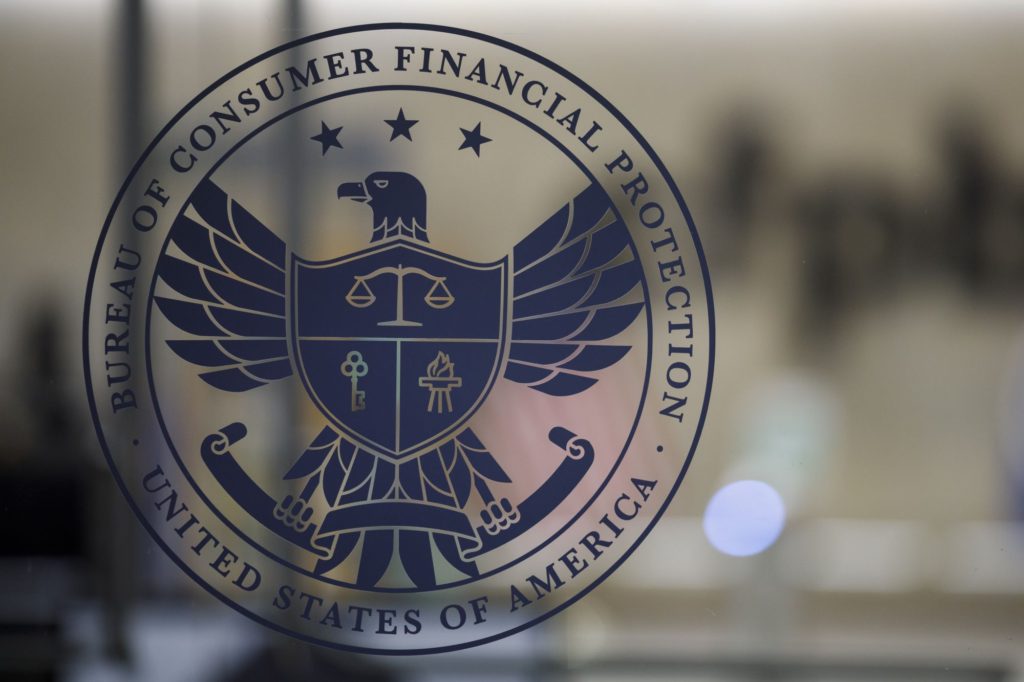(Bloomberg) — Credit-reporting company TransUnion is an “out-of-control” repeat offender that has been violating a law-enforcement order intended to stop the company from engaging in “deceptive” marketing practices, the Consumer Financial Protection Bureau alleged.
The bureau filed a lawsuit Tuesday against TransUnion, two of its subsidiaries and longtime executive John Danaher, who recently left the Chicago-based company. Danaher was a top executive for the unit called TransUnion Interactive, according to a statement from the CFPB.
“TransUnion is an out-of-control repeat offender that believes it is above the law,” CFPB Director Rohit Chopra said in the statement. “I am concerned that TransUnion’s leadership is either unwilling or incapable of operating its businesses lawfully.”
TransUnion called the claims against the company and Danaher “meritless,” and said that the CFPB ignored its compliance plan and didn’t advise the firm of its concerns.
“Despite TransUnion’s months-long, good-faith efforts to resolve this matter, CFPB’s current leadership refused to meet with us and were determined to litigate and seek headlines through press releases and tweets,” the company said in a separate statement Tuesday. “The CFPB’s unrealistic and unworkable demands have left us with no alternative but to defend ourselves fully.”
The CFPB is accusing TransUnion of continuing to violate a 2017 order against the company. That year, the bureau took action against both TransUnion and Equifax Inc. for allegedly deceiving consumers. As part of a settlement, TransUnion agreed to pay $13.9 million in restitution to victims and $3 million in civil penalties, the bureau said Tuesday.
TransUnion failed to comply with the order, according to the consumer finance watchdog. The CFPB told TransUnion in 2019 that it was violating multiple requirements of the order, and told the company again in June 2020 that it was still failing to comply and engaging in additional violations. The CFPB said TransUnion uses various methods “to trick people into recurring payments and to make it difficult to cancel them.”
Check Box
Danaher was also subject to the 2017 order, the bureau said. Danaher decided that complying with the order would reduce the company’s revenue, so he devised a plan for delaying or avoiding implementing it, the CFPB alleged Tuesday.
“Danaher determined that using an affirmative-selection check box, required by the order to limit unintended subscription enrollments, would result in fewer enrollments into TransUnion’s Credit Monitoring service,” the bureau said. “Danaher instructed TransUnion Interactive to cease using the check box, which led to millions of enrollments.”
Danaher’s counsel said the claims were “without merit.”
“This lawsuit demonstrates that the CFPB is focused more on politically expedient headlines than the facts or the law,” Danaher’s attorneys, Jeff Knox and Brooke Cucinella of Simpson Thacher & Bartlett LLP, said in an emailed statement. “Mr. Danaher very much looks forward to his day in court.”
The case is Consumer Financial Protection Bureau v. TransUnion, 22-cv-01880, U.S. District Court, Northern District of Illinois (Chicago).
(Updates with comment from Danaher’s attorney starting in 10th paragraph.)
More stories like this are available on bloomberg.com
©2022 Bloomberg L.P.











